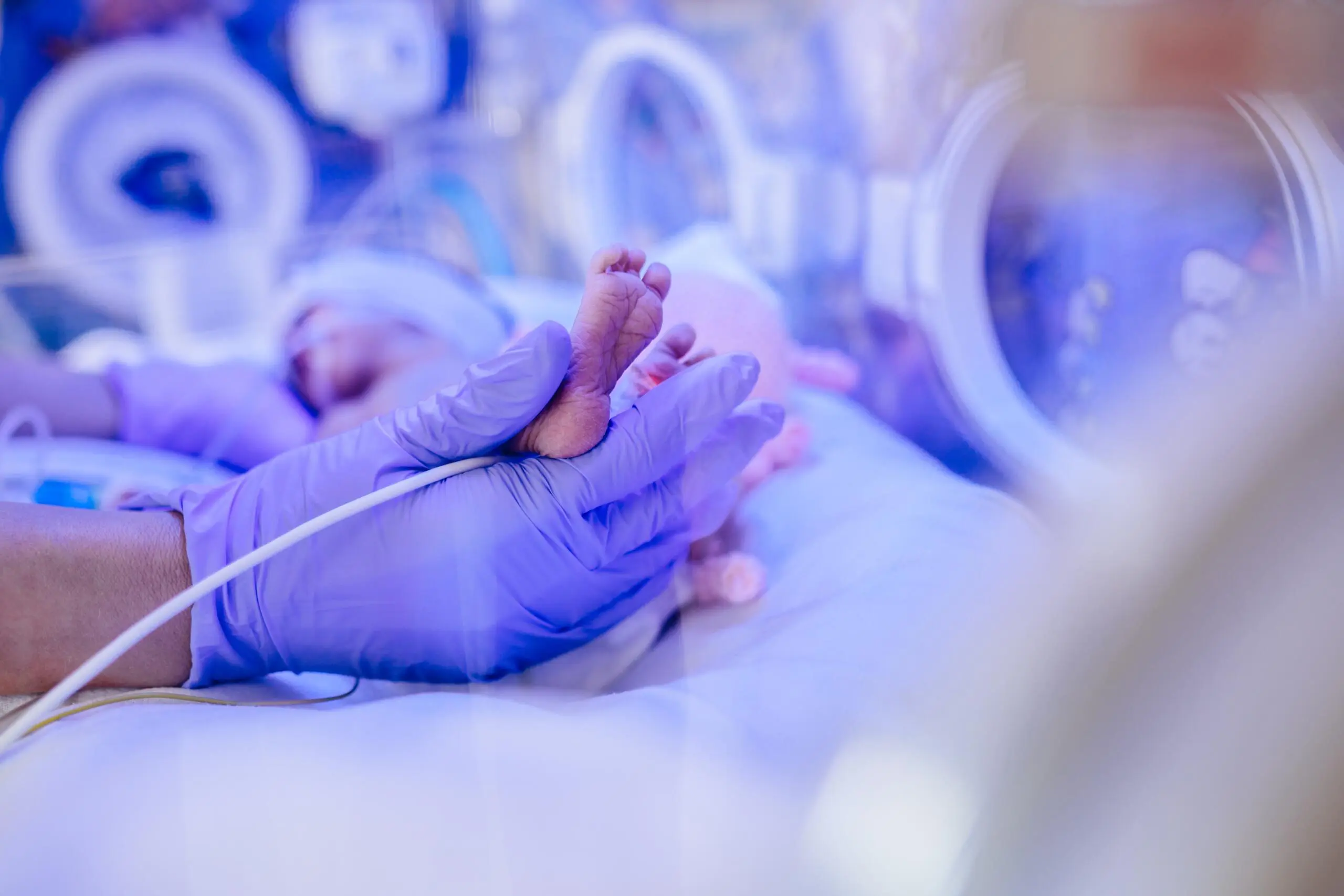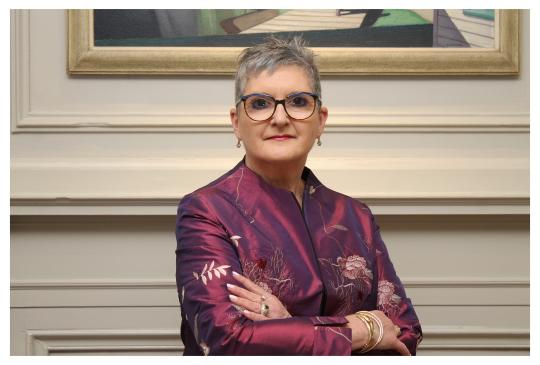
International Nurses’ Day, celebrated annually on May 12, is a day for recognizing the vital contributions and accomplishments of nurses across the globe. Who better to reflect on the pivotal role nurses play in advancing global health and well-being than the University of Toronto Scarborough’s very own Principal Linda Johnston, whose nursing research specialization lies in identifying global health initiatives in neonatal care? Through the lens of a pan-European initiative in nursing, Johnston interrogates the potential for anyone to become a caregiver and sustainability activist—especially parents:
Worldwide, about 14 million babies are born preterm (<37 weeks' gestation) each year, with over one million children dying each year because of complications arising from preterm birth, and three-quarters of these deaths could be prevented with current, cost-effective interventions. Much attention is focused, rightly so, on low- and middle-income countries, where southern and central Asia and sub-Saharan Africa accounted for 65% of all preterm births globally in 2020 (Ohuma et al., 2023).
Addressing the global burden of preterm birth is essential for reducing pre-term-related neonatal and child mortality and achieving the Sustainable Development Goal target 3·2: committing to reducing neonatal mortality to 12 or fewer neonatal deaths per 1000 live births in every country.
Preterm infants represent Europe’s largest child patient group, with about 500,000 preterm infants born each year (10% of all births), with the numbers increasing in the last 10 years, a trend that is only expected to continue. The structure and provision of neonatal care vary widely across Europe, in part because healthcare systems differ between, and within, EU member states. Differences are also observed at the regional and hospital level. Countries with the highest rates of prematurity are among those without a targeted national policy for newborn health and preterm infants.
In 2014 the parent-led organization European Foundation for the Care of Newborn Infants (EFCNI) campaigned in collaboration with 80 parent and healthcare organizations for the support of the European Parliament in the development of the European Standards for Care for Newborn Health (ESCNH). This initiative follows the efforts outlined in SDG 17, focusing on global partnerships to address sustainability concerns. In 2018 the first set of evidence-based standards developed by 220 clinical experts and parents, based on 11 key topics, was released (Lindacher, V., et al., 2020). These reference standards are designed to support physicians, nurses, other healthcare professionals, and parents in decision-making from the prenatal period through to post-natal life and early childhood. The goal is for the standards to be incorporated into national guidelines and legislation where feasible across the EU, with the overall aim of harmonizing the standards of care for preterm and sick infants and their families. The standards are regularly updated with the best evidence (Geiger, I et al., 2024).
Reports suggest successful implementation and uptake of the final 102 standards has been variable to date. The next phase of this project is the development of a digital self-assessment tool (SAT) to be translated into several languages and pilot-tested in 20 hospitals across Europe. The tool will provide healthcare professionals with baseline data on compliance with the ESCNH and can be utilized in institutional quality improvement processes (Hoffman et al., 2025).
Whilst the achievements to date in relation to harmonizing standards for newborn health in Europe are impressive, perhaps more remarkable is the fact that the initiative was driven by a parent organization.
EFCNI was founded by Silke Mader, a parent of extremely preterm twins, one of whom died. The Mader family’s experience of a lack of medical, social, psychological, and economic support and the then health system’s failure to recognize them as equal partners in the care of their surviving infant led to Silke establishing what was then a local, Munich-based parent support group. The goal was to develop an international network that would advocate for the needs of sick and pre-term infants and their families, utilizing the expertise of neonatal healthcare providers and policymakers to implement systemic changes in maternal and child health in Europe. Fast-forward to 2025, and the organization is now the Global Foundation for the Care of Newborn Infants (GFCNI), with patient and parent organizations sharing the vision for improving maternal and newborn health so that every baby born receives the right care in the right place at the right time.
SDG 17 recognizes that achievement of the other SDGs requires strong international cooperation and partnerships between governments, the private sector, civil society, and academic institutions from local to global, and based on shared vision and goals. The ESCNH project, under the auspices of EFCNI and now GFCNI, is a tangible example of the power of patients and families as partners in healthcare.
References
Ohuma, E, Moller, A, Bradley, E, Chakwera, S, Hussain-Alkhateeb, L, Lewin, A, Okwaraji, Y, Mahanani, W, Johansson, E, Lavin, T, Fernandez, D, Dominguez, G, deCosta, A, Cresswell, J, Krasevec, J, Lawn, J, Blencowe, H, Requejo, J, Moran, A. (2023) National, regional, and global estimates of preterm birth in 2020, with trends from 2010: a systematic analysis. Lancet. 402:1261-71
European Standards of Care for Newborn Health: https://newborn-health-standards.org/
Lindacher, V.; Altebaeumer, P.; Marlow, N.; Matthaeus, V.; Straszewski, I.N.; Thiele, N.; Pfeil, J.M.; Zimmermann, L.J.I.; Mader, S. The European Standards of Care for Newborn Health project members European Standards of Care for Newborn Health—A Project Protocol. Acta Paediatr. 2020, 110, 1433–1438.
Geiger, I.; Kostenzer, J.; Matthäus, V.; on behalf of the ESCNH Chair Committee; Mader, S.; Zimmermann, L.J.I. Reassessing and Extending the European Standards of Care for Newborn Health: How to Keep Reference Standards in Line with Current Evidence. (2024) Children 11, 179. https://doi.org/10.3390/children11020179
Hoffman, J, Lehmann, S, Ancora, G, Humler, H, Lack, N, Schlembach, D, Schouten, E, Simonelli, I, Blomqvist, Y, Vavouraki, E, Webbe, J, Zimmerman, L, Mader, S, Geiger, I. (2025). Study protocol of the development and pilot-testing of a self-assessment tool for the implementation of the European Standards of Care for newborn Health (ESCNH). BMJ Paediatrics Open 9:e003008 doi:10.1136/bmjpo-2024-003008

